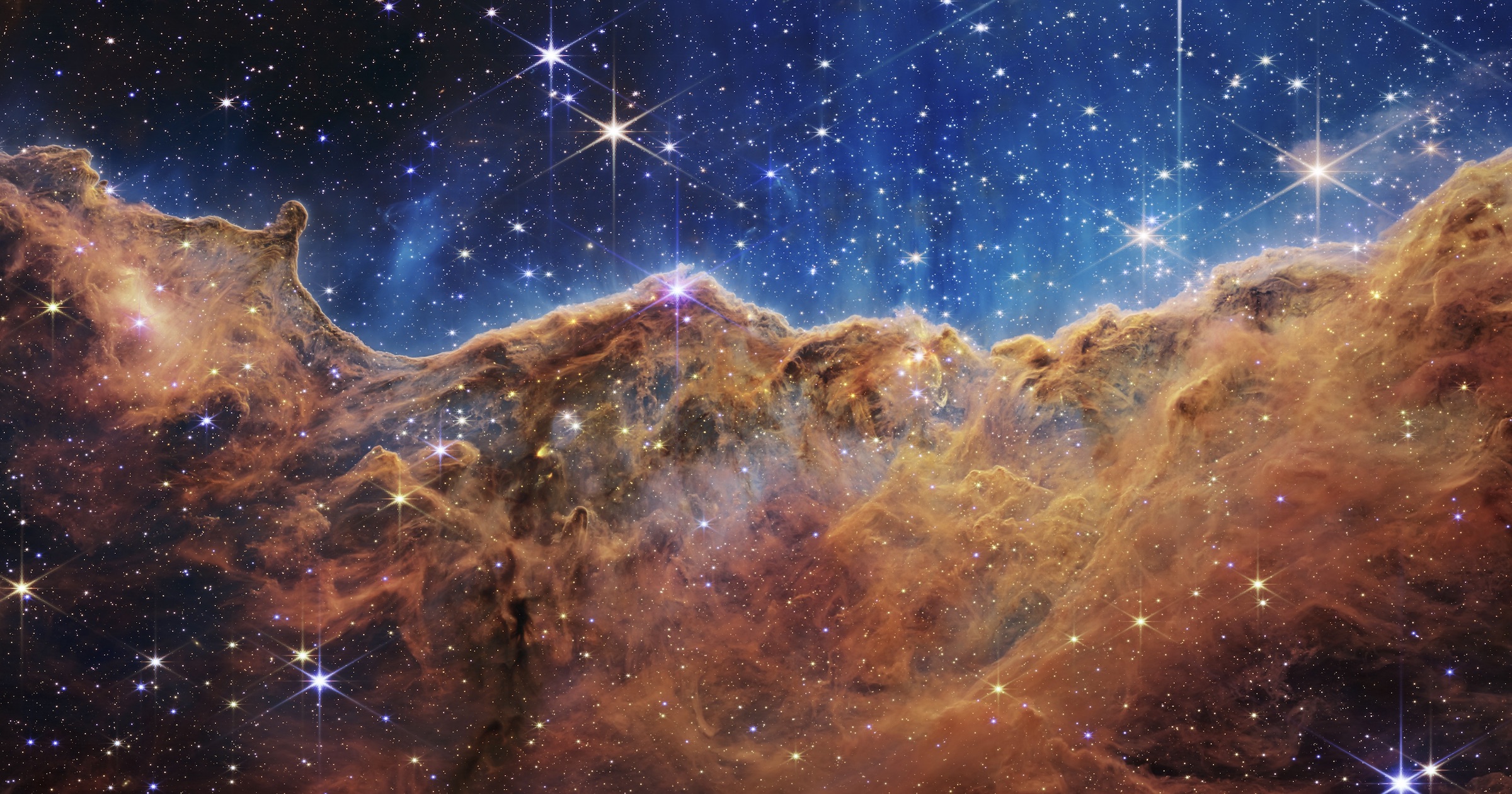 Physics, Earth & Space
Physics, Earth & Space
Calm Down: Yes, the Big Bang Happened

Don Lincoln, a Fermilab scientist, addresses claims (reported on here) that infrared images from the James Webb Space Telescope cast doubt on the veracity of the Big Bang. He links to an article at Evolution News and seems confused as to the general view among intelligent design proponents on the subject. He writes:
Current theory suggests that the most ancient galaxies should be very small. Furthermore, they should be irregularly shaped. Over time, these tiny galaxies would slowly merge, eventually becoming much larger, like our own Milky Way. However, these infrared-visible galaxies seem to be far larger and more regularly shaped than what was predicted.
And this fact has resulted in some commentary, especially from people with a long hostility to the idea of the Big Bang. (One article cites a scholarly paper on the topic, whose title begins with the provocative word “Panic!”) One such individual is Eric Lerner, who penned the book The Big Bang Never Happened. Others who endorse either creationism or intelligent design are also using these reports to claim the same thing. [Emphasis added.]
The Webb images of ancient galaxies “seem to be far larger and more regularly shaped than what was predicted.” And ID proponents are on board with Eric Lerner’s marginal claim that the “Big Bang Never Happened”? If true (and it’s not), that would be quite surprising in light of the fact that, in philosopher of science Stephen Meyer’s most recent book, Return of the God Hypothesis: Three Scientific Discoveries That Reveal the Mind Behind the Universe, the observation that the universe had a beginning (aka the Big Bang) is given as one of three pillars supporting the case for a transcendent mind at work in nature.
Three Reasonable Hypotheses
In any event, Dr. Lincoln offers three reasonable hypotheses himself as to why the Webb images appear to show galaxies having formed too soon after the Big Bang (even at 180 million years):
So, what could be an explanation that doesn’t require anyone to rewrite physics textbooks? One simple possibility is that there is dust between the distant galaxy and the JWST. As anyone who has watched a breathtaking sunset knows, dust preferentially scatters away blue light and lets red pass through. Perhaps the reports of distant galaxies are due to their light having shifted toward the red and infrared — not only because of the expansion of the Universe, but also because of intervening dust.
Another very simple possibility is that, because the JWST has only been operating for a very short time, its online optics and electronics have not yet been properly calibrated. It could be that additional operational experience will lead the JWST technical staff to adjust the signal processing and algorithms, which could mean that these early claims could disappear.
Of course, it is also possible that the reports are true, and it turns out that early galaxies are larger and better formed than current theory predicts. However, this doesn’t have anything to do with disproving the Big Bang; instead, it may require us to modify theories of how matter in the early Universe assembled into galaxies. This would require some tweaking, but that’s a far cry from rejecting the Big Bang entirely.
Indeed. So, let’s all calm down and stop falsely tarring proponents of intelligent design for things we don’t believe and that would go against our most prominently articulated arguments.
